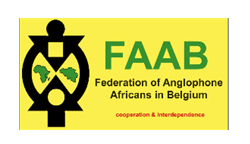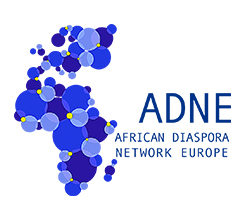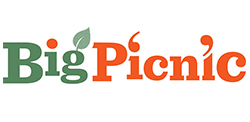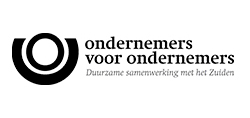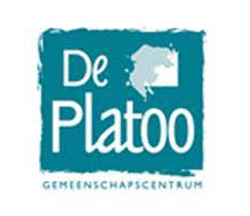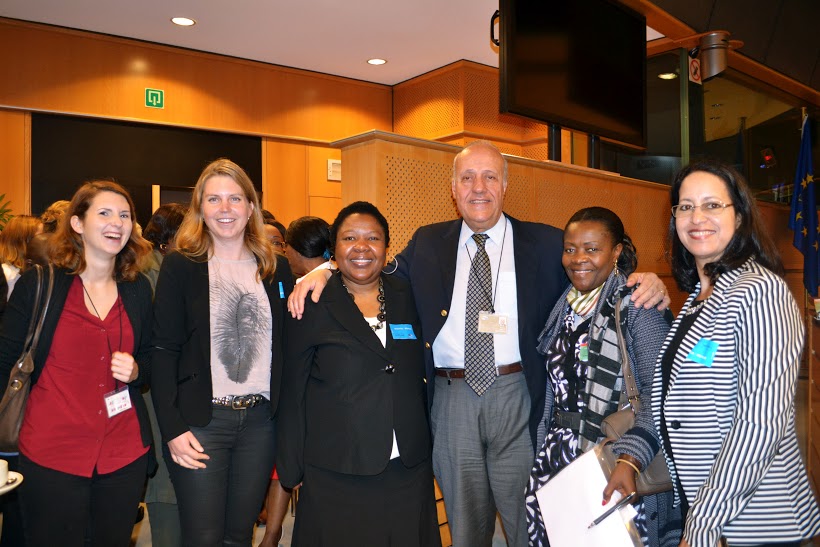
The presence of participants from diverse professional backgrounds and interests at the conference, was proof of a collective interest to seek solutions for the challenges our food systems face. The approaches may differ as shown in the presentations but the goals are the same, to have a sustainable food system and bring an end to hunger in our society. The conference brought together academics, development policy makers, female farmers and leaders of community based organizations, to explore gender roles in our food systems. Knowing the main role played by women in this area and the challenges they face, we focused on them as an important category of actors in food related sectors.
The conference had two sessions which were excellently moderated by Mr Gino Brunswijck, a Policy officer at the Africa Europe Justice and Faith Network (AEFJN) and Ms Marie Chantal Uwitonze, an Adviser to MEP Louis Michel and Founder, African Diaspora Network Europe(ADNE). Dr Maureen Duru, the Founder of The Food Bridge vzw, welcomed the participants and introduced the conference theme, highlighting the relevance of women in our food system.
The keynote paper was delivered by Prof Dr Peter Scholliers on Food, Gender and Migrants. This was followed by Karin Ulmer of Actalliance's paper on 'Gender and Food; seed issues in Africa', and Dr Nvenakeng Suzanne Awung, the Founder of the Forgotten Green Heroes, gave a paper on 'Gender discrimination in customary land-tenure systems and its influence on food production and poverty alleviation'. This first session was concluded with the paper of Mr Mustapha Sinaceaur, (Director FAO Brussels liaison office) on FAO's engagement in supporting women's roles in food systems through agribusiness and rural farming projects.
The second session began with an insightful paper on 'Women in the agro-market in Africa by Ms Modi Ntambwe ( Chair RVDAGE-SVAV and ReFI –oe -Immigrant Women Network in Belgium), she used examples from her organization's projects in the Congo to emphasize what is relevant to rural women. After this came another brilliant presentation by Ms Djuke Van der Maat, who used her farming experience to give insights on 'women farmers in the Netherlands'. Mr Edmond Asongayi, a finance expert , also used his research results in his paper 'A review of micro finance programmes impact on households’ food security in rural West Cameroon'. Finally Ms Sonia Paiva of Eswatini kitchen, drawing from her experience gave a paper on 'Strengthening Food Security in Rural Households by Linking Them to the Market: The case of Eswatini Kitchen and Woman Farmer Foundation in Swaziland'.
The theme of this conference is in line with The Food Bridge’s aim of working with rural women by assisting them to broaden their roles in agriculture, using approaches and tools that strengthens their capacity as valuable assets in the fight against food insecurity in developing countries. This is based on the belief that women as custodians of indigenous food knowledge, given the right support are in a unique position to bring the needed synergy for improved and sustainable food systems. Of importance also is that African Diaspora organizations (as shown by their presence at the conference) are eager to be fully engaged in discussions on food security policies and decision making in the continent, because they have the potentials to lead positive actions in the food and agribusiness sectors. It also provided a forum for networking and to explore what resources are available from global development agencies for the food and agribusiness projects in the developing world.
The key points from the conference are;
- Our food cultures have a great influence on our food systems and should be given more attention in development policies
- Although gender is relevant in food systems, the realities for women from the different regions of the world differ, because of the differentiated gender roles and powers in their communities
- Female farmers should be empowered as economic actors and decision-makers to maximize their potentials as agents of change in the fight against hunger and food insecurity
- Female farmers need access to resources such as land, finance, technology, education and new legal frameworks to optimize their output
- Data from across the developing world is not fully representative of the issues on ground regarding the role of women in food production
- Creating international markets for female owned agribusiness is not enough, it is important to also grow the local markets
- Civil society’s role is important to insure equity in the food systems
- Indigenous knowledge and researchers are an asset for a sustainable food system and in the fight to end hunger
- Global development agencies are open to cooperation with interested parties working on supporting food and gender initiatives although accessing them can be challenging
- Public , private and cooperation is important in achieving food security
- Lastly to keep the dialogue current, inclusive and on-going, give a voice to small development actors too.
Summary of papers
Prof Dr Peter Scholliersin his keynote paper examined Food, Gender and Migrants, emphasizing the historical dimension because it is only through knowledge of the past that we may interpret the present. Using his research on migrants he showed how despite years of living outside their countries of origin, migrants still have a close link to their food culture even when sometimes they may have lost their language and other modes of identification. He stressed the importance of food as a socio-cultural marker, stating that food is not just a physiological need but also shows affection, expresses people’s identity, creates borders and taboos. Food is shown as a means of communication which for migrants is embedded in at least two cultures-their own culture and the “other”. This “other” can be nearby or distant, concrete or an abstract. He further examined how migrants cope with new foodways of the “other” and how the welcoming region (host community) cope with the new foodway of the migrants.
In this paper he highlighted that food for migrants also poses problems as well as opportunities. Addressing what he termed as migrants’ strategies and food, he elucidated the “survival usages” of food by Italians in Brussels prior to 1914 and the Algerians “cultural usage” of food post 1950. For the Italians, this survival usage was mainly through food related work- street vending, work in restaurants and then owning Italian restaurants and food shops. This in turn had direct influence on the foodway of the “new region”(Brussels), with the introduction of new ingredients, dishes and cuisine.
On the other hand, for the Algerians food was for identity retention, as it can help evoke Algeria, the homeland left behind thus enabling a strong identity construction. Food was used to show own culture vis-à-vis- Belgian foodway. Yet there is an overlap between “own” and “other” food which is evident according to variables such as generation, income, education. This in turn leads to negotiations between these foodways ( a negotiation with the new environment different ingredients, ordering/time of eating, view on food etc) initiating a cultural mix.
Furthermore, Prof Scholliers noted that foodways change invariably and the outcome is dialogue between cultures, which can also challenge the notion of authenticity. However, food is basic to our sense of community, incorporating people within a group. It unities and distinguishes but is also a strong communication tool which expresses power relations leading to new gender relationships.
Ms Karin Ulmerin her paper examined the seed policies in Africa. She started by exploring the whole components of gender in the context of the body, reproduction, separation and power relations with regard to food policies. She stated that gender embodiment can also signify the saying that we are what we eat, thus plant reproduction is very important in our food system. However, many of the current seed policies and new seed laws deny farmers rights of indigenous resources. She also noted that civil society and local associations are excluded from the debate on seed issues in Africa. So the challenge is how do we maintain safe seeds which also insures safe food and continuation of indigenous farming methods. She emphasized that the solution lies in a new framework for food policy which is more inclusive, thus female farmers and traditional knowledge should be appreciated in seed and food policies.
Dr Suzanne Awung’s paper focused on the discriminatory custom land tenure systems and its effects on food production and poverty alleviation. Dr Awung pointed out that very few studies have been done, to understand how women’s marital status affects land acquisition rights and the essential role this play in food provision. Her paper examined how women’s marital status interacts with discriminatory gender customary practice and the role of women in food production. Her data was collected from 259 respondents and analysed in SPSS. She noted that the Cameroon legal framework gives equal land rights and access to natural resources to both men and women, but the customary tenure system inhibits women from inheriting or owning land. She explained that though family units are essential elements in nation building, the customary law recognizes only men as full citizens with full access to land but land ownership amongst women correlates with their marital status. Thus according to these customary rules, a woman’s status determines her land ownership; female divorcees can own land, followed by widows, then married women and spinsters. The local customary belief influenced the community land ownership rights, resulting in gender inequality which deprive women the basic rights to own lands. This means that socio-economic power and decision making on land issues rests with men, although women are the backbone of food production in rural households. She advocates for a reform of customary laws in Cameroon especially the gender inequality in customary land ownership. This will enhance poverty alleviation amongst rural women who work so hard on these lands producing food but lack ownership of this important resource . she also stated that land ownership will empower the women economically with enough money for themselves and their families. Of importance too, according to Dr Awung, is education for rural women because this will raise their awareness regarding their rights.
Mr Mustapha Sinaceur, the director of FAO Brussels liaison office gave a very informative overview of the FAO’s policies on food security; and Food and Gender issues in particular. He noted that the gender gap in agriculture is hindering development, because although women constitute 43 percent of the labour force, they don’t have access to vital products and resources such as land, technical assistance and market. However, if female farmers have equal access to resources as the male farmers there will be about 20-30 percent increase in farm yields, and farmers can get the opportunity to move from subsistent agriculture.
According to Mr Sinaceur, FAO is engaged in projects based on policies with gender as a cross cutting theme, addressing issues such as female farmers access to and control of land. He noted that in sub-Saharan Africa, 15percent of land owners are female but they own lands of inferior quality and lack access to finance and most. He also stated that credit markets are not gender neutral, so there is institutional discrimination against female farmers especially in rural areas. Although there are guidelines to insure a revised policy addressing these issues, it is non-binding. He explained that FAO with the EC and other development agencies collaborate to support governments and agribusiness ventures who in turn work with women and small holder farms. Furthermore, FAO’s database provides useful information on what is current concerning gender and land tenures. Thus information on good practices are gathered, which helps to develop tools and guidelines on gender themed projects. The aim is to provide support for women and counteract the negative impact of practices in rural associations and areas where women are always excluded from decision making and markets. Responding to a question on FAO’s seed policies in the developing countries, he said that FAO is supporting community seed banks, noting that they have had good results in Latin America and Central Asia.
Ms Modi Ntambwe in her paper, used insights from her organization’s work with female farmers in Congo to challenge some of the preconceptions about rural female farmers. Stating that she advocates a multi-tiered approach, she points out that since many of these women live in rural and remote areas, that is where we should start to make changes. She noted that the internal instruments and policies are on ground but need to be made better, to address the needs of the women. She stated that solutions for rural female farmers should have their input, focusing on what they know they need, rather than what they are told they need. According to Ms Ntambwe, the main need for these women is to feed their families and to sell any extra produce they have in the local market. She emphasised the importance of also creating market for the rural women, because when attention is focused on the big and international markets, then politics gets involved. She also pointed out that basic education is good but is not a necessity for all women, because they are able to pass on knowledge or information in their local languages. So there is a need to capitalize on their local knowledge, which also allows them to maintain their food sovereignty. Moreover, the rural women should be able to participate in data collection which reflects their reality; there should be a distinction between what is universal and what is not, this insures rural women can be food secure. Thus when they have enough food to eat and feed their families, then they will have the time to look at what their rights are and address some of the myriad challenges in their environment; such as leadership in indigenous communities and more influence in decision making.
Ms Djuke van der Maatin her paper on women farmers in the Netherlands, provided another perspective on the challenges that women farmers face, bringing to light the difference across the south/north divide. She explained that because of her environment, she had choices which are not available to women farmers in developing world. Although she started working in her family farm, she chose to go into farming, she had education opportunities, communication tools, ownership and decision making rights. Despite the fact that she knows she has equal rights with the men, yet the agricultural sector in the Netherlands is still male dominated and more respect for female farmers’ skills is needed.
She shared her experience of working in a farm and a her company, which collaborates with local farmers to create a sustainable market for their produce. She explained that her farm uses an integrated farming method, which focuses on taking care of the environment. She also runs open days at the farm and organizes visits to teach people about food production. According to her, many people are losing touch or have no knowledge about how and where their food is produced. To achieve success, Ms Van der Maat stated what is important for any woman venturing into farming or agribusiness, based on her own experience and these are ;- quality, tell your story, know your staff and customers, always be open to collaborations and continuous formal/ non formal education.
Mr Edmond Asongayishared findings from his research in the paper 'A review of micro finance programmes impact on households’ food security in rural West Cameroun' which showed the link between poverty and food insecurity. He noted that the female farmers in rural areas are denied financial support and credit facilities from banks because they lack collateral for such loans. However, having access to microfinance can empower rural female farmers economically and grant them access to the resources they need to become food secure. He views microfinance (microcredit, micro saving and micro insurance) as a suitable practical solution for rural women because it is based on trust and have very low interests. Mr Agongayi also acknowledged the possibility that some microfinance banks may operate below acceptable standards, but he said training and functional education is very important to insure the women are aware of what to expect and how to use the loans effectively.
FinallyMs SoniaPaivaof Eswatini Kitchen, in her paper 'Strengthening Food Security in Rural Households by Linking Them to the Market: The case of Eswatini Kitchen and Woman Farmer Foundation in Swaziland', showed how agribusiness can be designed and operated to empower women. She explained the imbalance between male and female contributions towards the home, thus the rural female farmers she works with, have seen a great improvement in their homes because of the economic empowerment their work brings. She also explained the imbalance between male and female contributions towards the home, thus the rural female farmers she works with, have seen a great improvement in their homes because of the economic empowerment their work brings. Achieving success working with women who have been restrained by traditional practices that deny them full access to resources was not without challenges. However, she explained that unfavourable gender biased practices and traditions can be gradually changed, by working with the local heads of communities.
Despite the challenges, she currently works with 2000 women farmers, creating a ready market for their crops and promoting leadership among female farmers. The crops bought from rural farmers are used to produce different food products in the factory of Eswatini Kitchen, which employs mainly women. She explained that although she started small, she benefited from public- private partnership, utilizing the opportunities they give to access resources such as trainings, technical input and markets.
She advised those interested in setting up entrepreneurships in agriculture in support of women, to first look for what opportunities are available and decide on what aspects are of interest. If the rural women are not organized or educated, this has to be included in the plans of the enterprise, because organizing them will make it easier for one to work with them and also get the right support. She noted that education will not only enable the women understand the usefulness of the project but will empower them by making them believe in themselves. Answering a question on how can one work with a government that does not share the same vision, Ms Paivi responded that to bypass the government is not a solution but people can seek areas of common interest and start collaborations, stating that she works with the ministry of agriculture in her country. Furthermore, she said to improve the role of female farmers, there should be collaborations, roles for farmers organizations, trust in each other and the involvement of government.
To end the conference,Mr Christopher Oliha, the President of Federation of Anglophone Africans Belgium gave the closing remarks and vote of thanks. He pointed out the challenges small organizations face, in their efforts to access resources that will help them achieve their aims and called on global agencies and established organizations to collaborate more with these organizations.
For more information you can contact The Food Bridge vzw –This email address is being protected from spambots. You need JavaScript enabled to view it.
Maureen Duru
Coordinator, The FoodBridge vzw
FAAB Secretariaat
323 Rue Progress
1030 Brussels Belgium
0032 489 182 780
This email address is being protected from spambots. You need JavaScript enabled to view it.
Compendium
Upcoming Events
The Helping Hand Project
In collaboration with Kwabre Ne Sekyere Belgium,Mfantesman vzw,Voice of Women International, Kente FM and other African organizations, we are organizing "The Helping Hand project",is an action started in 2016, aimed at feeding the homeless in the Brussels area. We are in need of volunteers to help with the cooking, packing and distribution of food to the homeless and needy. We are also still looking for sponsors for this project. We do not accept funds but prefer sponsorship in the form of donations of desired food items, food packaging materials. if you are interested in giving a helping hand, contact us on This email address is being protected from spambots. You need JavaScript enabled to view it.







 For the first time, two visionary women have been jointly honored as the 2025 African Diaspora...
For the first time, two visionary women have been jointly honored as the 2025 African Diaspora...  The Collective Action on Forgotten Food is calling on women artists, designers, illustrators...
The Collective Action on Forgotten Food is calling on women artists, designers, illustrators...  The Food Bridge vzw, with the support of its partners, publishes an annual Compendium...
The Food Bridge vzw, with the support of its partners, publishes an annual Compendium...  Diaspora organizations in Belgium are vibrant and diverse—spread across...
Diaspora organizations in Belgium are vibrant and diverse—spread across...  30 years ago in Beijing, women from around the world demanded equality and also made history. The...
30 years ago in Beijing, women from around the world demanded equality and also made history. The...  Registration is still open for the upcoming FAO & ICMPD event on 𝗔𝗴𝗿𝗶𝗳𝗼𝗼𝗱...
Registration is still open for the upcoming FAO & ICMPD event on 𝗔𝗴𝗿𝗶𝗳𝗼𝗼𝗱... 